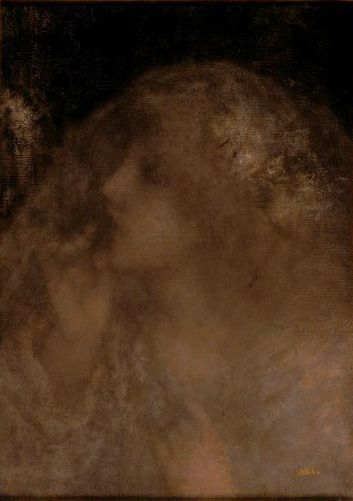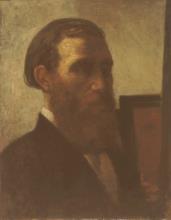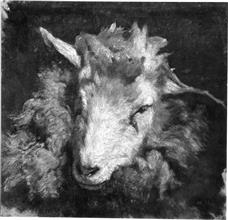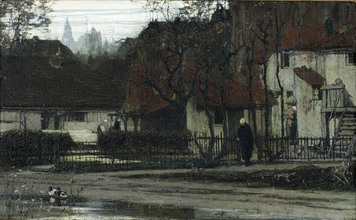Bruidje
Matthijs Maris
The veiled head of this young woman, still almost a child, is turned to the left. Her hands are raised, one in front of her chin, the other resting on her chest. Her posture suggests a state of concentrated observation. This depiction appears to be part of a larger scene, as the object of her attention is outside of the frame. Further evidence of the fragmentary character can be seen in her left hand, which is cut off at the wrist by the bottom edge of the picture. This figure has the vague contours of an apparition or an image from a dream. Matthijs Maris achieved this effect by painting several layers on top of each other using an extremely dry, loose paint to produce a matte surface. Maris painted a number of brides, the earliest dating from 1865–1869. Like the small children he painted, these brides are symbolic of purity. The sometimes fairytale atmosphere of his work created an early distinction between Maris and his fellow painters in the Hague School. Maris became a precursor of Symbolism, in which both Toorop and Thorn Prikker explored the theme of the bride. The Pre-Raphaelites painted similar female figures in England, where Maris settled in 1877.

Makers
Translated title
Bride
Collection
Production date
1898 of eerder
Library
Click here to view 4 related documents
Dimensions
75 x 59.5 x 5cm.
Material
oil on canvas
Object number
A 2275
Credits
schenking Vereeniging tot het Vormen van eene Openbare Verzameling van Hedendaagsche Kunst te Amsterdam (VVHK) / gift of the Association for the Formation of a Public Collection of Contemporary Art in Amsterdam (VVHK)





